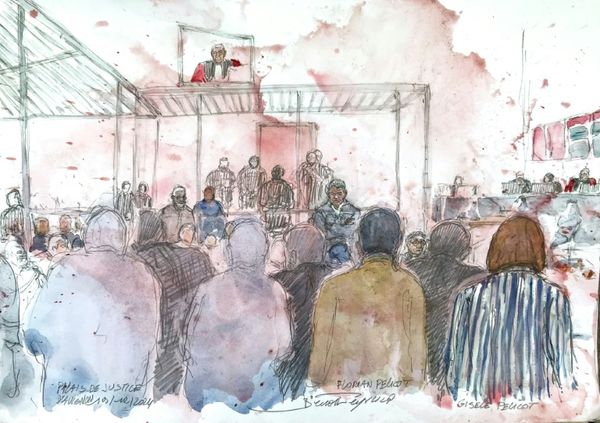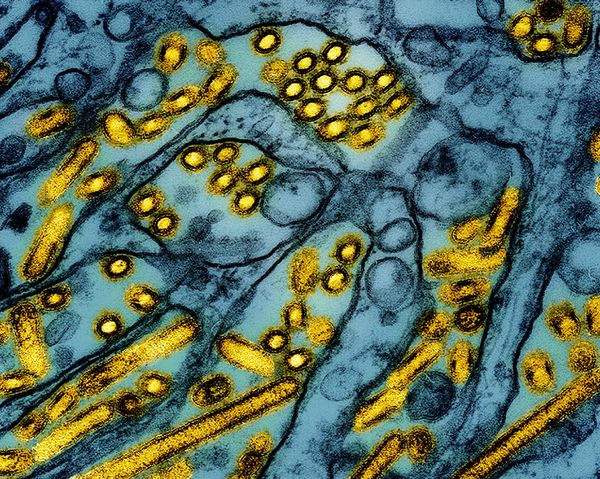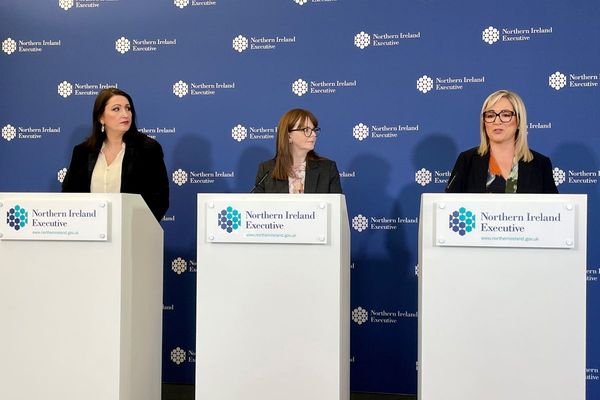
The chief prosecutor in the Bruce Lehrmann rape trial has told the Sofronoff inquiry that he was possibly misconceived in his perception that political pressure had been brought to bear on investigating police, suggesting much of their conduct might better be read as a “skills deficit”.
ACT Director of Public Prosecutions Shane Drumgold SC made the observations on Thursday after having had the benefit of reading the sworn statements of police officers tendered to the inquiry, but nevertheless maintained police were, in his view, strongly opposed to the case proceeding to prosecution from the outset.
He also did not retract evidence he had given regarding his perception of attempted political interference on the part of Brittany Higgins’ former employer Senator Linda Reynolds during the trial.
Under questioning by his counsel, Mark Tedeschi KC, Drumgold was asked what led him to believe external or political forces had conspired to rob senior police officers of objectivity in the investigation.
In answer, Drumgold said it was a “range of issues”, including the nature of his initial meeting with police at the end of March 2021 over Higgins’ allegations, which he said had left him with the distinct impression police were fixating on finding evidence to “disprove her claim”.
“[My] interpretation was: ‘we’ve got these text messages, she hasn’t handed her phone over, she’s gone to the media — our clear view is this is dead — let’s get some evidence to kill it’,” he said, adding that “that was the vibe of their attitude” until Lehrmann was charged in August 2021.
In this connection, Drumgold pointed to the “really strong passion” with which police expressed their views, and the unusual attendance of superintendent Scott Moller at his second meeting with police in April, which he believed, whether “right or wrong”, was designed to exert pressure on him to accede to the view of police that the case was weak.
Beyond this, he said the highly unorthodox decision of a senior ranking police officer to provide defence with an unredacted brief of evidence, contrary to usual practice and mere days after Lehrmann was charged, sounded further alarm.
The unredacted brief contained several protected confidences, including unlawfully obtained counselling notes of Higgins, and a strongly worded summary of police doubts as to Higgins’ credibility.
“It’s no single event — it’s the ongoing, compounding of crosswinds that I’m dealing with,” Drumgold told the inquiry.
The inquiry also heard that investigating police had taken it upon themselves to interview ACT victims of crime commissioner Heidi Yates, who was Higgins’ support person, and had effectively “cross-examined” Higgins in a police interview by repeatedly using leading questions — issues Drumgold described as unheard of and inappropriate.
“Many sexual assault complainants have support people and I’ve never seen them get dragged in and asked for an interview,” he said. “I also [knew police] had prepared detailed summaries of reasons why this matter should be acquitted … In my view, there was a risk they’d just joined the defence team.”
When asked, however, whether the sworn testimony of police had allayed his concerns that the antipathy displayed by police owed to “political interference”, Drumgold generally agreed.
Pointing to the “cumulative effect” of all the factors grounding his suspicions, he said the police statements had provided clarity to “the unknown behind that”. He added that this extended to the early delivering of the brief of evidence to defence by police, which he described as “probably just an error”.
“My current view is that [most of their conduct] was probably — having read all the police statements — most likely a skills deficit on the part of investigators, including senior police,” he said.
Elaborating on what he meant by “skills deficit”, Drumgold said it was plain those police officers lacked an understanding as to how issues of witness credibility are dealt with under modern evidence law, with their views instead informed by “antiquated”, “stereotypical” beliefs about the behaviour of complainants in sexual assault cases.
When pressed by chair Walter Sofronoff KC on whether he was referring to “rape myths”, Drumgold agreed.
He said these “passionately held” but misconceived beliefs had more than likely led police to reason about the prospect of a credible case from a false premise, with the consequence police had placed too much weight on inconsequential matters and misconstrued the threshold of evidence required to comfortably proceed to prosecution.
“[There’s a] significant risk that if those views are adopted early and held passionately, they will just simply create a confirmation bias or infect the investigation,” he said. “That’s the real vice here.”
The “complete lack of objectivity” this engenders would, he said, explain why one officer felt he’d have no choice but to resign if Lehrmann were convicted, and why another said he felt “physically sick” at the prospect of charges being laid.
Earlier, the inquiry heard Drumgold had informed investigating police their concerns about Higgins’ credibility, as detailed in the Moller report, were overstated, but that the depths of their misunderstanding had only been uncovered by their sworn statements to the inquiry.
When Kate Richardson SC, acting for ACT Police, put it to Drumgold it was “entirely orthodox” for police to raise concerns about witness credibility, Drumgold agreed.
But he pointed out there was a difference between citing evidence that might bear upon credibility, on the one hand, and expressing an opinion, like “she’s a blind-faced liar”, on the other, and insisting the latter be afforded significant weight.
Drumgold was also taken to evidence that suggested police were of the view the DPP was being subject to political interference.
In a diary entry taken by Moller during a 2021 meeting he had with ACT deputy chief police officer Michael Chew, Moller wrote that Chew had told him he’d been advised a prosecution would follow but that “if it was my choice I wouldn’t proceed. But it’s not my choice. There is to [sic] much political interference.”
Drumgold told the inquiry he would construe that as evidence of “a strong resistance to charging and [that] I’m pressuring [police] to charge”, adding that the inclusion of this note in Moller’s statement before the trial heightened his own concerns about political interference.
Despite having conceded that his beliefs about political interference on the part of police were misplaced, Drumgold said he was of the view his call for a public inquiry remained valid.
When Sofronoff put it to him that he felt “duty-bound” to raise his concerns in the explosive November 2022 letter he sent ACT chief police officer Neil Gaughan, Drumgold agreed.
He also gave evidence that he still held to his fears of political interference on the part of other players in the Lehrmann matter, such as Senator Linda Reynolds.
Asked, for instance, about the significance of text messages Reynolds sent to Lehrmann’s defence counsel during the trial, where she suggested texts between Higgins and another former Reynolds staffer, Nicole Hamer, were “revealing”, Drumgold said it was “pretty difficult” for him to draw any conclusion other than that Reynolds was trying to assist the defence.
On Wednesday, Drumgold had told the inquiry that in July 2021 he was disturbed by comments in the media by then-home affairs minister Karen Andrews and AFP commissioner Reece Kershaw that a decision to charge Lehrmann hadn’t yet been reached and that it rested with the DPP, despite the fact Drumgold had already advised police a prosecution could follow.
Yesterday, he elaborated on this, telling the inquiry it seemed as though “someone didn’t want to charge [Lehrmann, but wanted to be able to say] if charges don’t result: ‘well, it’s not us, it’s the DPP'” — an inference Richardson objected to, calling it the “gravest of allegations”.
The inquiry also heard that Drumgold’s readiness to proceed with a second trial in the event of a hung jury owed to his belief that only one juror was “holding out” on a conviction.
When asked whether this juror was the same juror involved in juror misconduct, Drumgold said it was.
Lehrmann, for his part, has always maintained his innocence.
The hearing continues.







